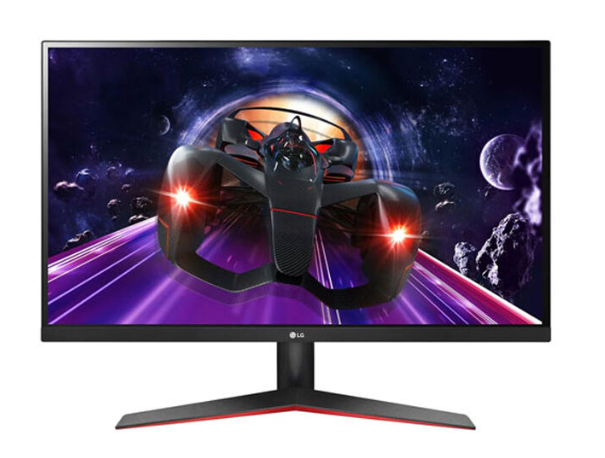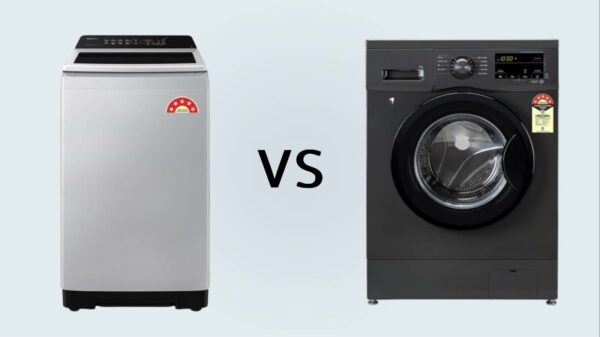Gaming laptops and regular laptops differ significantly in terms of performance, design, and functionality. Gaming laptops are built to handle demanding tasks, featuring powerful processors, high-end graphics cards, and advanced cooling systems. Regular laptops prioritize portability, battery life, and affordability, catering to everyday computing needs such as browsing, office work, and media consumption.
Understanding these differences is crucial for choosing the right laptop to match your specific requirements and usage patterns. In this blog of Pickaboo, let’s check the differences between gaming laptops and regular laptops.
-
Build and design
Gaming laptops are designed with robust build quality and often feature aggressive, eye-catching aesthetics with RGB lighting and distinctive logos. They are generally bulkier to accommodate advanced cooling systems needed to manage high-performance components. In contrast, regular laptops prioritize sleekness and portability, often boasting a minimalist design that is lightweight and compact. These laptops typically have less complex cooling needs and a more subdued appearance, making them suitable for professional and casual use. The build and design of each type reflect their intended purpose, balancing performance, and convenience accordingly.
-
CPU and performance
Gaming laptops are equipped with powerful CPUs, usually high-performance processors like Intel Core i7 or i9 series and AMD Ryzen 7 or Ryzen 9 series. These processors offer multiple cores and threads, optimizing multitasking and handling demanding gaming tasks effectively. They are designed to deliver top-tier performance for running graphically intensive games smoothly at high settings. Regular laptops, on the other hand, feature a range of CPUs from entry-level Intel Celeron or Pentium to mid-range Intel Core i3 or i5 and equivalent AMD Ryzen processors. These CPUs are sufficient for everyday tasks such as web browsing, document editing, and multimedia consumption. They prioritize energy efficiency and balance performance for general computing needs rather than high-end gaming or intensive applications.
Overall, the CPU and performance capabilities of gaming laptops are geared towards delivering superior gaming experiences, while regular laptops focus on versatility and battery life for typical daily use.
-
GPU
Gaming laptops are distinguished by their powerful dedicated graphics processing units (GPUs), typically from NVIDIA’s GeForce GTX or RTX series, or AMD’s Radeon RX series. These GPUs are designed to handle complex 3D graphics rendering and provide high frame rates necessary for immersive gaming experiences. They offer substantial video memory (VRAM) and advanced features like ray tracing for realistic lighting and reflections in games.
Regular laptops often integrate integrated GPUs (iGPUs) from Intel or AMD, which are integrated into the CPU and are suitable for basic graphics tasks like video streaming, casual gaming, and photo editing. They prioritize energy efficiency and heat management, offering adequate performance for everyday computing tasks without the power demands of dedicated gaming GPUs.
-
Battery life
Battery life is a crucial consideration where gaming laptops and regular laptops diverge significantly. Gaming laptops, due to their powerful hardware components and high-performance GPUs, typically have shorter battery life compared to regular laptops. They often require more energy to sustain intensive gaming sessions, resulting in reduced mobility and reliance on constant power sources.
In contrast, regular laptops prioritize longer battery life to support extended use throughout the day without frequent recharging. Their hardware configurations, which are optimized for efficiency rather than raw power, allow for better battery longevity, making them ideal for users who need portable computing solutions for work, school, or travel without being tethered to a power outlet.
-
Price and value
Price and value propositions vary significantly between gaming laptops and regular laptops. Gaming laptops typically command higher prices due to their specialized hardware for superior gaming performance. They feature high-end processors, dedicated graphics cards, and robust cooling systems, which contribute to their premium cost. However, for gamers and enthusiasts, the investment translates into exceptional gaming experiences and the ability to run demanding software smoothly.
Regular laptops, while generally more affordable, offer excellent value for everyday users seeking functionality, portability, and longer battery life at a lower price point. They cater to a broader range of tasks from web browsing to productivity tools, making them cost-effective choices for students, professionals, and casual users alike.
Is a gaming laptop better than a regular laptop?
Whether a gaming laptop is better than a regular laptop depends entirely on the user’s specific needs and priorities. Gaming laptops excel in delivering high-performance capabilities with powerful CPUs, dedicated GPUs, and advanced cooling systems, making them ideal for gamers who require smooth gameplay and graphical fidelity. However, they are typically heavier, bulkier, and more expensive than regular laptops.
Conclusion
The decision between a gaming laptop and a regular laptop depends on your specific needs and usage requirements. Gaming laptops offer unparalleled performance for gaming and intensive tasks but come with a higher price tag and may sacrifice portability and battery life. Regular laptops provide excellent value for everyday computing needs, emphasizing portability, longer battery life, and affordability. Understanding these differences allows you to make an informed choice based on whether you prioritize gaming performance or general usability and mobility.







